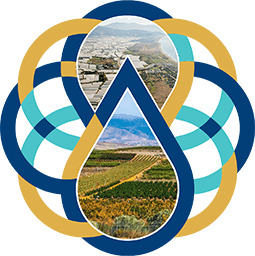About GOTHAM
1.6 million € budget, funded by the EC under the PRIMA (Partnership for Research and Innovation In the Mediterranean Area) programme, to tackle groundwater management challenges in the Mediterranean and elsewhere to ensure long-term sustainable use of the resource
Aim
Co-create a user-driven tool that enables effective groundwater governance for the preservation of the quantity and quality of this strategic resource in the Mediterranean basin

Background
The Mediterranean basin has been identified as one of the world’s basins being the most at risk due to climate and anthropogenic changes. Today, the most affected areas are the eastern and southern rims which face high water stress and/or water scarcity. On the one hand the southern and eastern areas provide only 4% and 2% of the Mediterranean water resources and on the other hand, the population of the Mediterranean basin is increasing every year: in 2001, 187 million people lived along the Mediterranean coastline among which 79% lived on the southern and eastern rims. By 2050, the total population of the Mediterranean basin is expected to reach 269.7 million (according to the United Nations Population Division’s projections, 2009). Therefore, these territories are considered water-poor (according to data extracted from the Aquastat database; FAO 2010). Moreover, the development of tourism resorts, industrial activities, a strong urban expansion, the increased irrigation of Mediterranean crops (which have high water requirements) and all these related trends are leading to a substantial increase in water demand. This last has doubled in the Mediterranean basin since the late 1950s (Blinda and Thivet 2009) and are expected to constantly increase. By 2050, this water stress could affect the whole Mediterranean basin mainly due to the decrease by 30 to 50% of the available resources (because of the climate change) and to the projected water use (following the current trends) which could double the resource extraction (Milano et al. 2013).
The GOTHAM project takes up the challenge of water depletion due to conflicting use. To overcome this water stress, GOTHAM addresses the decision process of current groundwater governance models, through which doubts are raised, and knowledge is generated at each decision level and however, there is no exchange of information between different agents.
There is therefore a need of a tool capable of allowing data exchange between the different stakeholders and water users and of integrating this highly valuable information in groundwater governance decisions. The benefits of this exchange of information are wide and would allow to overcome critical current governance limitations.
The main reason for this situation in that throughout the decision process of current groundwater governance models, doubts are raised, and knowledge is generated at each decision level, however, there is no exchange of information between different agents.
In this sense, there is a need of a tool capable of allowing data exchange between the different stakeholders and water users and of integrating this highly valuable information in groundwater governance decisions. The benefits of this exchange of information are wide and would allow to overcome critical current governance limitations.